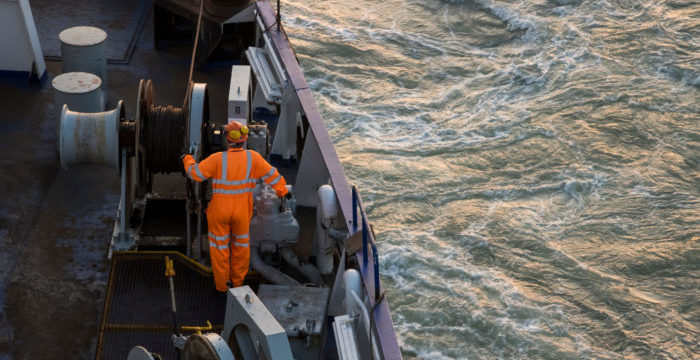The European Parliament voted on April 4 regarding the revision of Directive 2008/106/EC on the minimum level of training for seafarers. The revision gives emphasis on the level of transparency that should prevail in processing demands for the recognition of seafarers’ certificates of new third countries.
Such a recognition will now stop to be automatic, as the decision to launch this process will have to be taken by the Commission by means of an implementing decision and on grounds of several criteria:
[smlsubform prepend=”GET THE SAFETY4SEA IN YOUR INBOX!” showname=false emailtxt=”” emailholder=”Enter your email address” showsubmit=true submittxt=”Submit” jsthanks=false thankyou=”Thank you for subscribing to our mailing list”]
ETF welcomed this vote as it considers it was to improve the efficiency of the administrative framework regarding the mutual recognition of training and certification systems foreseen under this Directive. This would enable a more efficient allocation of the Commission resources and the EU taxpayers’ money.
When the decision to revise Directive 2008/106/EC was made, ETF pointed out that this should be seen as an opportunity to create a new ambition for Europe’s maritime training and called on the policymakers for developing more far-reaching legislation providing for the establishment of an EU-wide maritime certificate of excellence going beyond the STCW requirements. The idea being to harmonise maritime curricula upwards in Europe.
ETF stated.
In addition, the ETF called for the creation of a European network of Maritime Education and Training institutions (METs). In this aspect, seafarers’ education will be supported by exchanges of students between METs across the EU.
ETF also welcomed the fact that the European Parliament has supported the ETF plea by highlighting the need to invest in the future, European Maritime Diplomas of Excellence (EMDE). The revised Directive stipulates that these form of training beyond the STCW requirements will have to be designed by the Commission once the SkillSea project is completed at the end of 2022. NamelY, ETF hopes that EMDE will make it possible to create a competitive advantage for European seafarers by giving them skills above and beyond those needed at international level.
Finally, the organization commended the European Parliament for actively contributing to the positive outcome of the legislative procedure and its rapporteur, Dominique Riquet who showed a concern to improve the Commission’s proposal by betting on the quality of maritime education, the need for more action to improve the European maritime skills base, and a requirement for maritime safety for ships carrying European flags.































































